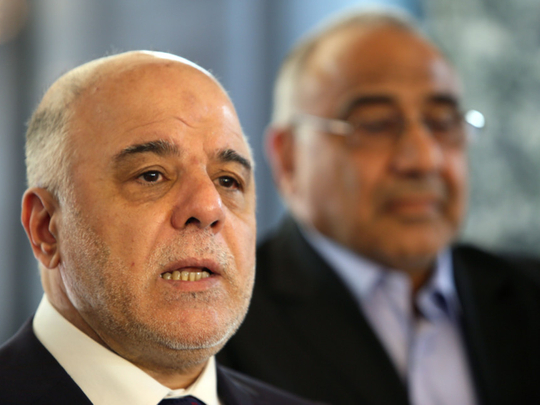
The second attack perpetrated by Israel on the occupied Syrian Golan Heights falls within the framework of firm and decisive changes on the field that are blazing a path towards the Syrian lands, said Oman’s Al Watan.
“These changes are heading towards the Syrian lands, which are under the command of the Syrian army and Lebanese resistance. This means that the bets placed on these terrorist groups, which are supported and commanded by Israel, are beginning to waver and collapse before the eyes of Zionists and their agents and allies due to the precise strikes carried out by the Syrian and Lebanese resistance, foiling the dream of a ‘safe and buffer zone’. This Israeli attack will not be the last; it merely represents a new page in the series of long-lasting plots against Syria.”
The turbulent conditions have kept the Arab nation busy from focusing on its primary enemy, said the UAE’s Al Bayan. “The Israeli air strikes that targeted the Syrian Golan Heights is a dangerous indication of the Zionist entity’s approach, which may enforce a new geopolitical reality that leads to bringing more Syrian land under Israeli occupation. Israel’s justification for the air strikes is that they come in response to rockets fired by the terror groups that are led by an Iranian extremist. However, this fabrication is clear for all to see. These ineffective and random strikes are merely an excuse for incursions into Syrian land and the expansion of occupation. The UAE’s stance towards the Syrian regime’s practices remains unchanged, but our stand with the Syrian state and Arab land is much firmer and determined and there is not a single Arab who would accept any harm done to Syria, regardless of our differences.
The demonstrations by the Iraqi people instil hope for the country that is facing a bitter reality, said Qatar’s Al Sharq.
“Despite the risks of partitioning due to sectarianism and continued violence since the US invasion in 2003, the Iraqi people’s movement reflects that they have overcome the complications caused by these crises. The people have taken the initiative and rejected sectarian policies that were consolidated by Nouri Al Maliki’s government. They are standing strong against the option of partitioning that was previously hinted at by General Raymond Odierno, the US Army’s former chief-of-staff. Iraqis more than ever need to establish a state of citizenship and equality. They need to stop the violence in order to ensure a dignified and stable life, and this requires everyone who is in disagreement to rise up to the levels of national responsibility.”
The most realistic scenario for the Iraqi situation, as indicated by Iraq’s Prime Minister Haidar Al Abadi, is to convince the protesters that the political process is immune to radical change, said London-based Al Quds Al Arabi.
“Al Abadi said that people have to accept partial and gradual reforms, hoping that with this ‘realistic’ scenario he will be able to avoid angering Iran.
“In other words, Iraq cannot attain any reform while preserving this political process that is immune to change due to its structural flaws and therefore people will have to choose between the political process that is less corrupt or complete political chaos. Iraq is now at a historic crossroads. Perhaps it is time for Al Abadi to stay true to his word so that the people of Iraq can be granted a real opportunity for a new beginning.”




_resources1_16a31069e4e_small.jpg)






